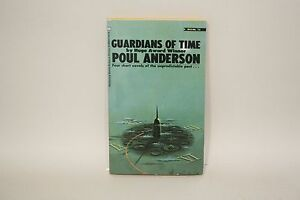This post addresses a by now familiar issue but might possibly express it in a slightly different way.
Manse Everard reflects:
"There were other Patrolmen in the pre-Roman past. They'd return to their respective eras and...see what had happened, and try to correct the trouble. If any of them succeeded, this world would blink out of spacetime, and he would go with it." (5, p. 204)
Some of them will see what has happened. By "world," Everard means not a planet or a universe but a particular course of history. That course of history will not merely "blink out" but will be replaced by another course of history.
First, to "blink out" is to cease to exist. To cease to exist is to have existed, not never to have existed. Indeed, Everard exists when he thinks this and refers to his blinking out as a future possibility. He does not, as elsewhere in the series, claim that it is possible that he has never existed and does not even exist now.
Secondly, if a "world"/course of history blinks out of spacetime, then one state of the four-dimensional spacetime continuum (before the blinking out) is succeeded by another state of the 4D continuum (after the blinking out). "Before" and "after" are temporal terms that obviously do not refer to any successive moments within the 4D continuum itself. To say that one 4D state succeeds another 4D state is to say that these two states are related to each other within a fifth dimension/second temporal dimension. 3D states of the universe succeed each other along the first temporal dimension and 4D states of the continuum succeed each other along the second temporal dimension.
Within the current continuum, it is true to say that Carthage never won the Second Punic War but within the total reality which, we are told, includes not just five but 4N dimensions, it is true to say that there was a history with a Carthaginian victory in the Second Punic War.
Everard and Van Sarawak could have returned Deirdre to live out the rest of her life in her home timeline.

No comments:
Post a Comment